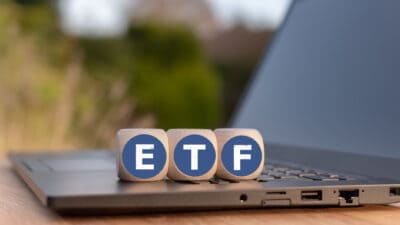The Betashares Global Cybersecurity ETF (ASX: HACK) is an exchange-traded fund (ETF) that gives investors exposure to a trend that is, unfortunately, growing in the world: defence against cybersecurity.
In a perfect world, there wouldn't be any cybercrime. But the world is becoming increasingly digital. More details are accessed online. There are more transactions being done online. And so on. There is more scope for cybercriminals to get up to mischief.
Optus affected
Indeed, just today we're learning that current and former Optus customers have potentially been involved in a data breach. The breach resulted from a cyber attack on the telecommunications company, as reported by various media including the ABC.
The ABC reports that Optus noticed "unusual activity" yesterday afternoon. The telco is now working with the Australian Cyber Security Centre (ACSC) and the Australian Federal Police.
Things like customer names, dates of birth, phone numbers, email addresses, addresses and ID document numbers such as a driver's licence or passport numbers may have been exposed.
Optus says that services remain "safe to use and operate as per normal".
Optus CEO Kelly Bayer Rosmarin said the number of people affected is "significant", but didn't say how many because it's too early:
We want to be absolutely sure when we come out and say how many.
We're so deeply disappointed because we spend so much time and we invest so much in preventing this from occurring.
Our teams have thwarted a lot of attacks in the past and we're very sorry that this one was successful.
Optus isn't the only business to suffer a cyber attack, though it is the most recent high-profile case. This is where the Betashares Global Cybersecurity ETF, or HACK, can help.
Cybercrime is growing
The Australian Cyber Security Centre Annual Cyber Threat Report 2020-21 showed that over FY21, the ACSC received over 67,500 cybercrime reports, an increase of nearly 13% from the previous financial year. It says:
A higher proportion of cyber security incidents this financial year was categorised by the ACSC as 'substantial' in impact. This change is due in part to an increased reporting of attacks by cybercriminals on larger organisations and the observed impact of these attacks on the victims, including several cases of data theft and/or services rendered offline.
The increasing frequency of cybercriminal activity is compounded by the increased complexity and sophistication of their operations. The accessibility of cybercrime services – such as ransomware-as-a-service (RaaS) – via the dark web increasingly opens the market to a growing number of malicious actors without significant technical expertise and without significant financial investment.
What does an ASX ETF have to do with this?
The Betashares Global Cybersecurity HACK ETF is invested in a portfolio of 37 businesses involved in cybersecurity.
Some readers may have heard of some of the largest businesses in the portfolio: Broadcom, Crowdstrike, Cisco Systems, Palo Alto Networks, Infosys, Cyberark Software, Zscaler, Fortinet, Science Applications and Booz Allen Hamilton.
As BetaShares says, the fund's portfolio includes global cybersecurity giants and emerging players from a range of global locations.
The ETF provider expects the global cybersecurity market to rise from $137.6 billion in 2017 to $248.3 billion in 2023.
Including the annual management fee of 0.67%, the ETF has returned an average return per annum of 14.9% over the three years to August 2022.
HACK ETF share price snapshot
But, past performance is no guarantee of future performance. It's down 24% this year, so its price is a lot cheaper.









